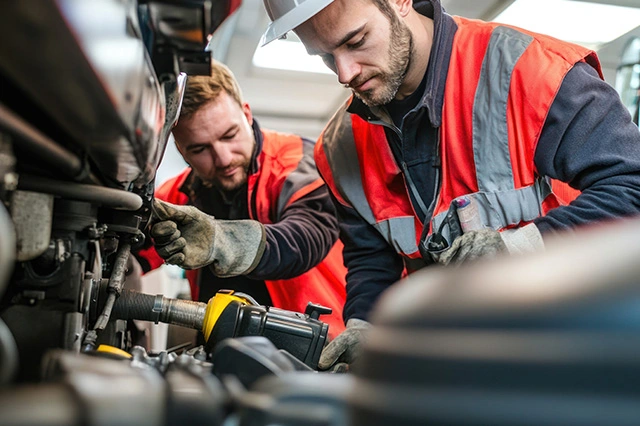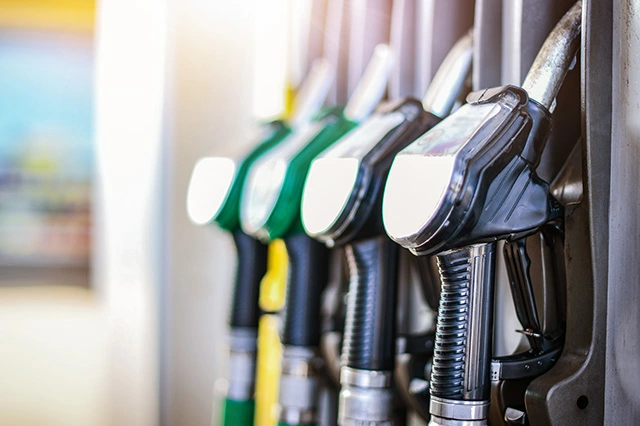The United Kingdom is at a crossroads in its transportation and logistics industry, particularly in the sector of haulage, where the push towards greener, more sustainable practices is not just a matter of regulatory compliance but a necessary step towards environmental stewardship.
So How Is The UK Achieving This?
Green haulage encompasses a broad spectrum of initiatives aimed at reducing carbon emissions, enhancing vehicle efficiency, and promoting sustainable fuel alternatives. As we delve into the facets of vehicle efficiency, HGV (Heavy Goods Vehicle) technology, fuel alternatives, and the crucial roles of driver training and fleet logistics, it becomes evident that the journey towards green haulage is multifaceted.
Vehicle Efficiency and HGV Technology
At the heart of green haulage are advancements in vehicle technology and efficiency. The UK has seen significant strides in the development of aerodynamic designs and lightweight materials for lorries, aimed at reducing drag and overall weight, thereby enhancing fuel efficiency. Furthermore, the incorporation of telematics and advanced fleet management systems allows for real-time monitoring of vehicle performance, fuel consumption, and driver behaviour, enabling more efficient route planning and vehicle maintenance.
Electric HGVs are gaining traction as a viable alternative to traditional diesel trucks, with manufacturers and tech companies investing heavily in electric drivetrains and battery technologies. The challenge remains in extending the range of these electric HGVs and reducing charging times, but ongoing research and development hold promise for the near future.
Fuel Alternatives
The quest for sustainable fuel alternatives is pivotal in the transition to green haulage. Biofuels, derived from agricultural products or waste, present a renewable option that can significantly reduce carbon emissions compared to fossil fuels. However, the scalability of biofuel production and its impact on food supply and land use are concerns that need addressing.
Hydrogen fuel cell technology offers another promising avenue, with water vapour as the only emission. The UK is exploring the development of hydrogen refuelling infrastructure to support this technology, although challenges related to hydrogen production and storage persist.
Training and Education of Drivers
The role of drivers in achieving green haulage goals cannot be overstated. Training programs focused on eco-driving techniques, such as optimal gear usage, speed regulation, and efficient braking, can lead to immediate reductions in fuel consumption and emissions. The UK is seeing an increase in such training programs, often supported by government initiatives or industry associations, highlighting the importance of human factors in complementing technological advancements.
Better Fleet Logistics
Optimising fleet logistics plays a crucial role in reducing the environmental impact of haulage. Efficient route planning, enabled by sophisticated GPS and mapping technologies, can minimize unnecessary mileage and idling times. Furthermore, the concept of ‘load sharing’—where companies collaborate to ensure trucks are fully loaded and return trips are minimized—helps in significantly reducing the total number of journeys and associated emissions.
Improved Cost Efficiency
With all the advances in technology and driver training, accidents are likely to drop as human error is further removed from the equation.
This will be welcome news for those who are wanting to compare HGV insurance or compare fleet insurance as they could well be seeing their premiums start to drop.
Conclusion
The journey towards green haulage is a comprehensive endeavour that requires the collective effort of technology developers, vehicle manufacturers, fuel producers, fleet operators, and drivers.
While challenges remain in terms of technology adoption, infrastructure development, and the need for widespread education and training, the progress made thus far is promising. With continued investment in vehicle efficiency, the exploration of fuel alternatives, and the optimization of fleet logistics, green haulage stands as a beacon of sustainable progress in the UK’s transportation sector.







